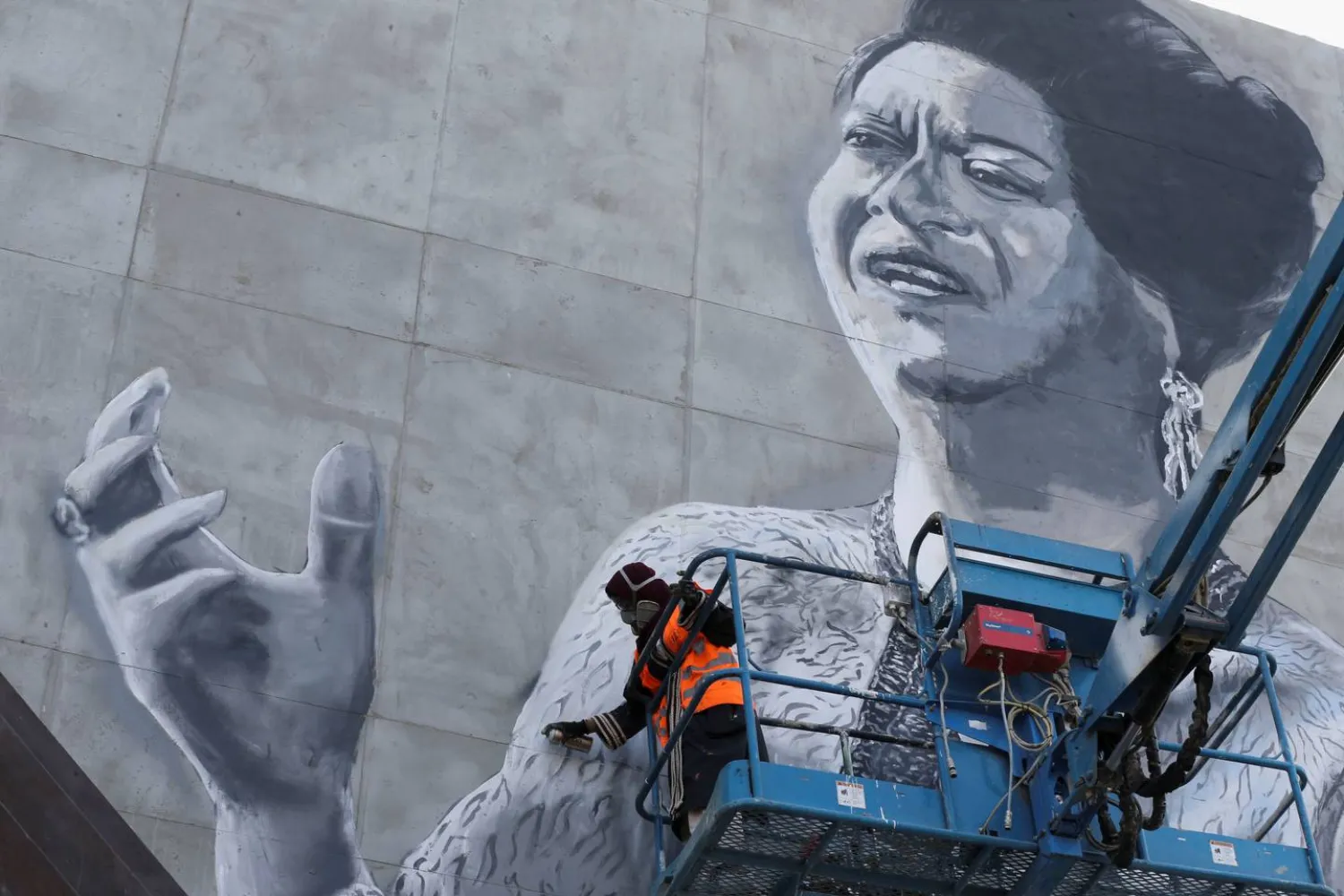As rap songs and ‘festivals’ have been on the rise in Egypt in the past years, many local bands including the Abdel Halim Nouira Ensemble for Arabic Music, and the Umm Kulthūm Group are seeking to preserve old songs by reintroducing the works of legends like Sayed Darwish, Abdullah al-Hamuli, Daoud Husni, Almaz, Mounira al-Mahdia, Mohammed Othman, Zakaria Ahmed, and many others in concerts that satisfied a large audience.
Among the bands reviving authentic Egyptian songs are “Al Ghouri Band for Arabic Music and Folklore” led by Maestro Omar al-Shehabi. The band includes 35 members, and “presents art and heritage as it’s supposed to be presented” since its establishment in 1971, explains al-Shehabi. It performs on the first Tuesday of every month as part of a regular program at the Al Ghouri Arts Center.
“The band performs songs, medleys, and roles that date back to the pre-World War One era, during which the artistic taste was largely affected by crises. The quality of artistic works at the time declined, but with the global stability in the 1950s-60s, singing recovered its originality, beauty, and value. We highly respect and support this type of singing, so we archive these works and classify them based on the singer, composer, and writers, song type, debut date, and the stage from which it launched,” Shehabi told Asharq Al-Awsat.
Al Ghouri Band records concerts, streams them online, and preserves them in the center’s library. It performed over hundreds of concerts, according to al-Shehabi who was appointed as the band’s director three years ago.
Dr. Ismat al-Nemer, surgery counselor and founder of “Egypt Phone Station” describes his project as “unique” in documenting the old Egyptian music heritage because it covers Egyptian singing industry from the early 1920s until the mid-1950s.
“Heritage is a pillar of the Egyptian identity. It mirrors social life, which can be clearly noticed in the artistic works made in the 1920s-30s to support the national movement and the Egyptian Revolution of 1919. These works also reflected the crises that hit the global economy, and how they affected the lives of people in Egypt. I memorized some of these songs, and sought to study, analyze, and write about them,” he said. “Egypt Phone is a 24/7 online station that I established 10 years ago. I also had a website with the same name that I dedicated to the same goal, but I couldn’t manage it and I had to shut it down.”
According to Nemer, there are no other institutions that contribute to preserving the Arabic singing heritage, except for the Lebanon-based Arab Music Archiving and Research foundation (AMAR) chaired by Kamal Kassar. AMAR is making great efforts in collecting and preserving old Arabic songs. This kind of efforts are highly needed to make these artistic treasures accessible to the audience, and that cannot be achieved unless local stations dedicate time and space to play these amazing songs,” he added.
Al-Nemer said his interest in heritage collection started in the 1970s, when he met Sheikh Imam Issa. They both had a great, long friendship, and Sheikh Issa always insisted on making Nemr listen to old songs. His close relationship with Sheikh Issa made Nemr love old singing styles and encouraged him to start collecting ancient songs until his archive reached over 25,000 old music materials so far.
During an interview with Asharq Al-Awsat, Maestro Yasser Anwar, head of the Franco Cairo Group, revealed the reasons that made his band (established in 2006) head towards old songs. “The idea wasn’t only mine; we were a group of youth dreaming of presenting good art for people, and we had to choose old songs because they make a great base for modern productions. We started working on the songs of the great Sayed Darwish, one of the pillars of Egyptian songs. Darwish was followed by many others including Al-Kasabji, Zakaria Ahmed, Riyad al-Sunbati, and Mohammed Abdul Wahab.”
Anwar said his 12-member group includes young ladies and children, who sing over 100 of Sayed Darwish’s songs without alterations, as well as songs composed by al-Sunbati and Abdul Wahab and sung by Najat, Umm Kulthūm, and Warda.
Regarding children’s role in the groups, Anwar believes that they are “the generation that should be prepared to handle the responsibility of preserving the Egyptian song and promoting it.”









